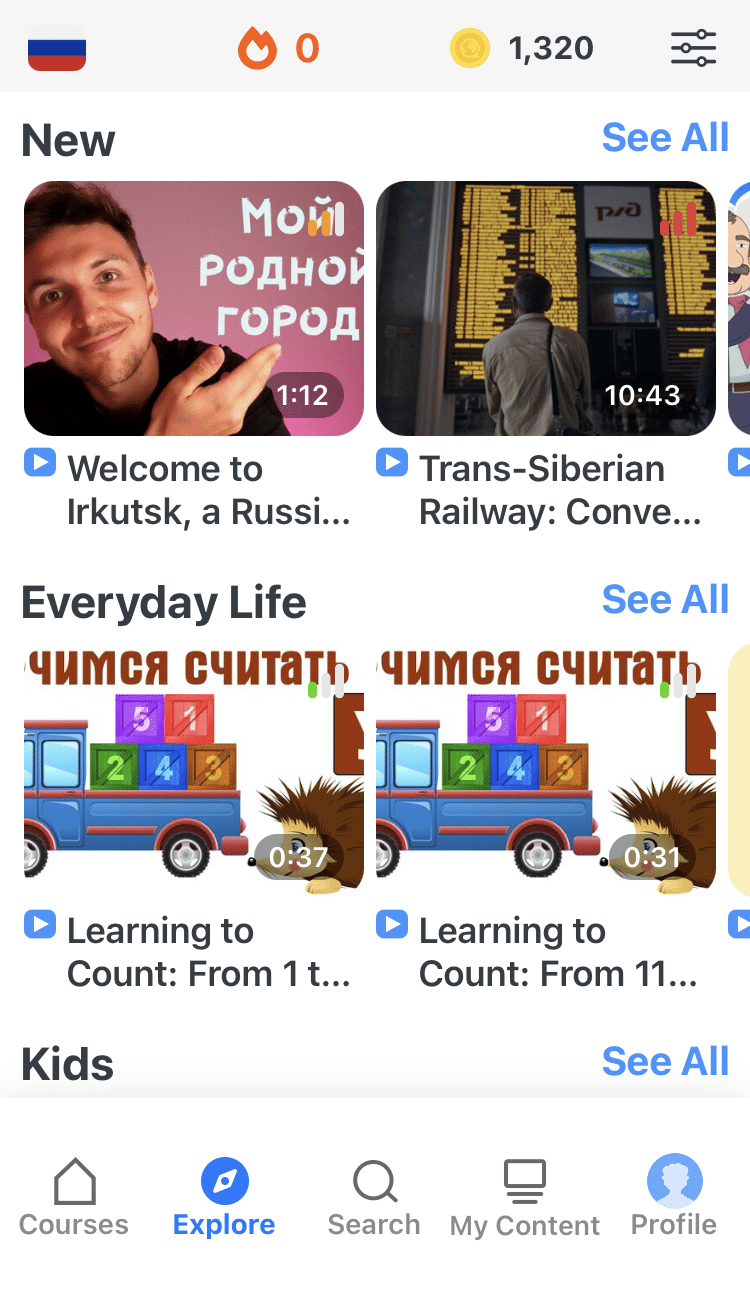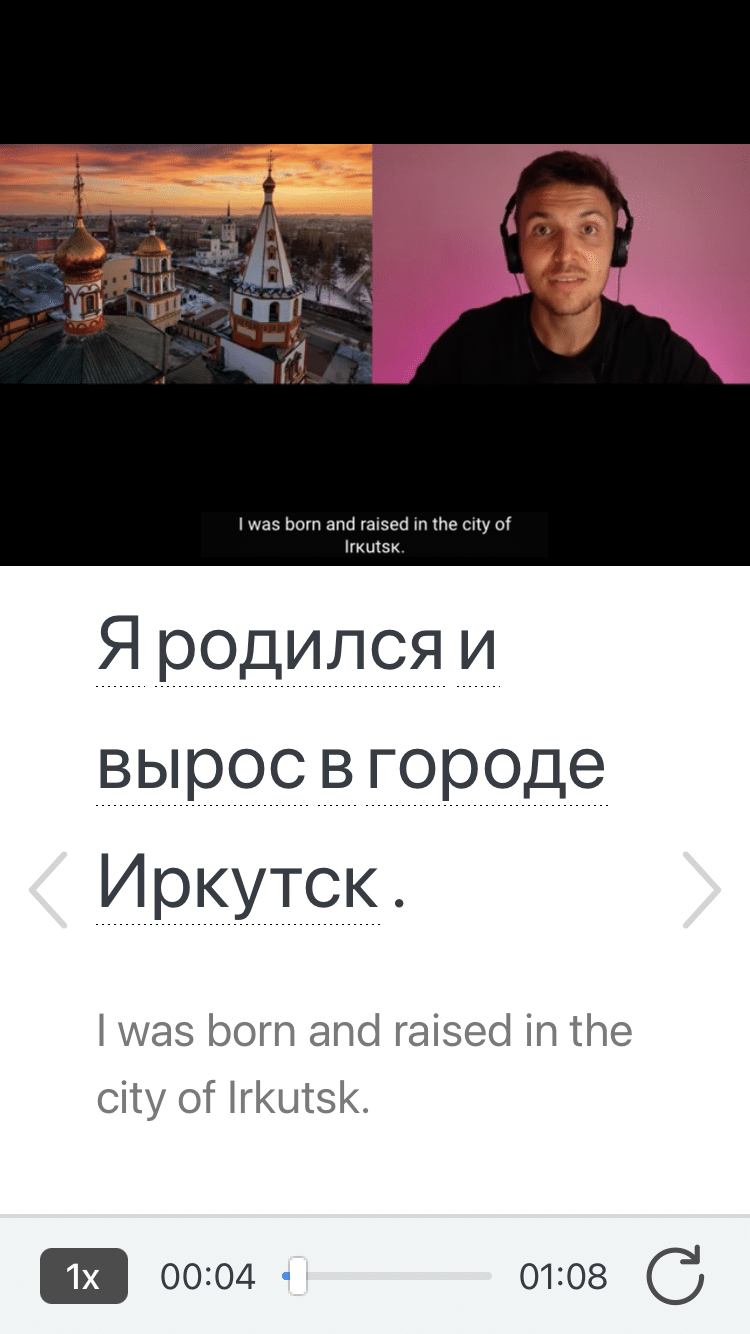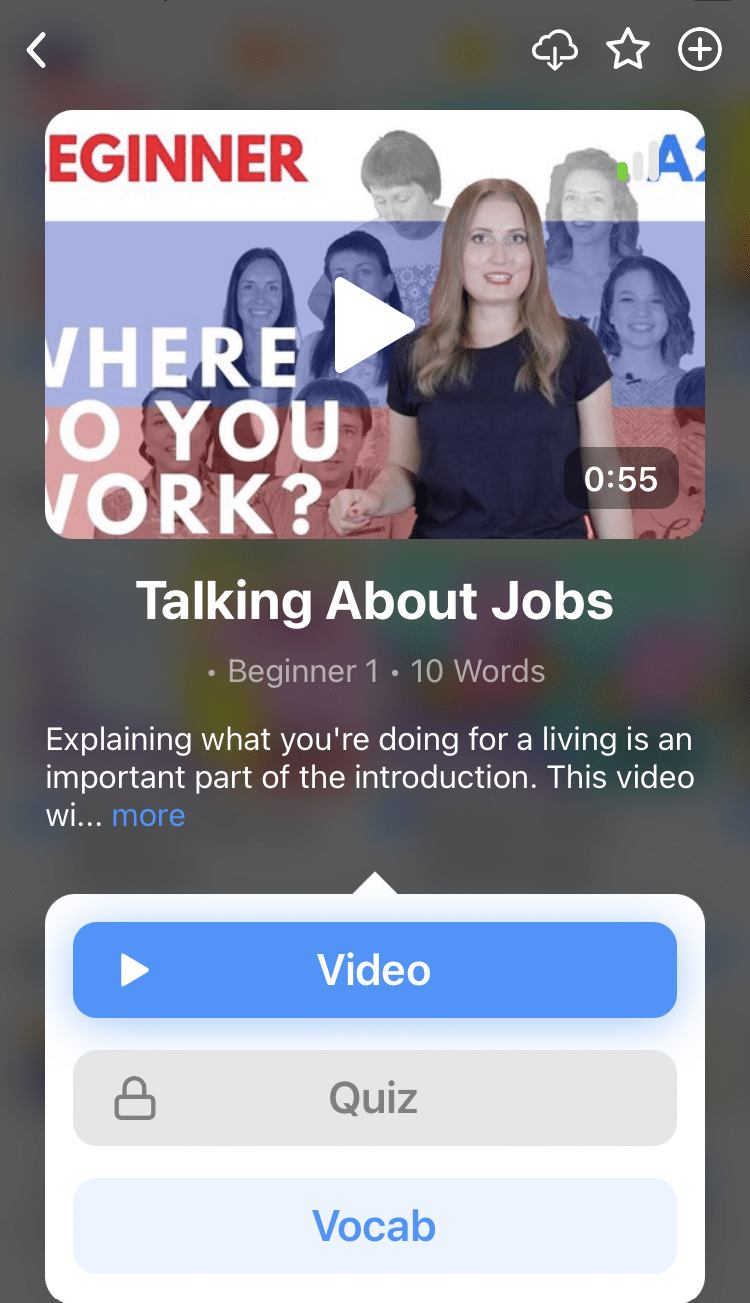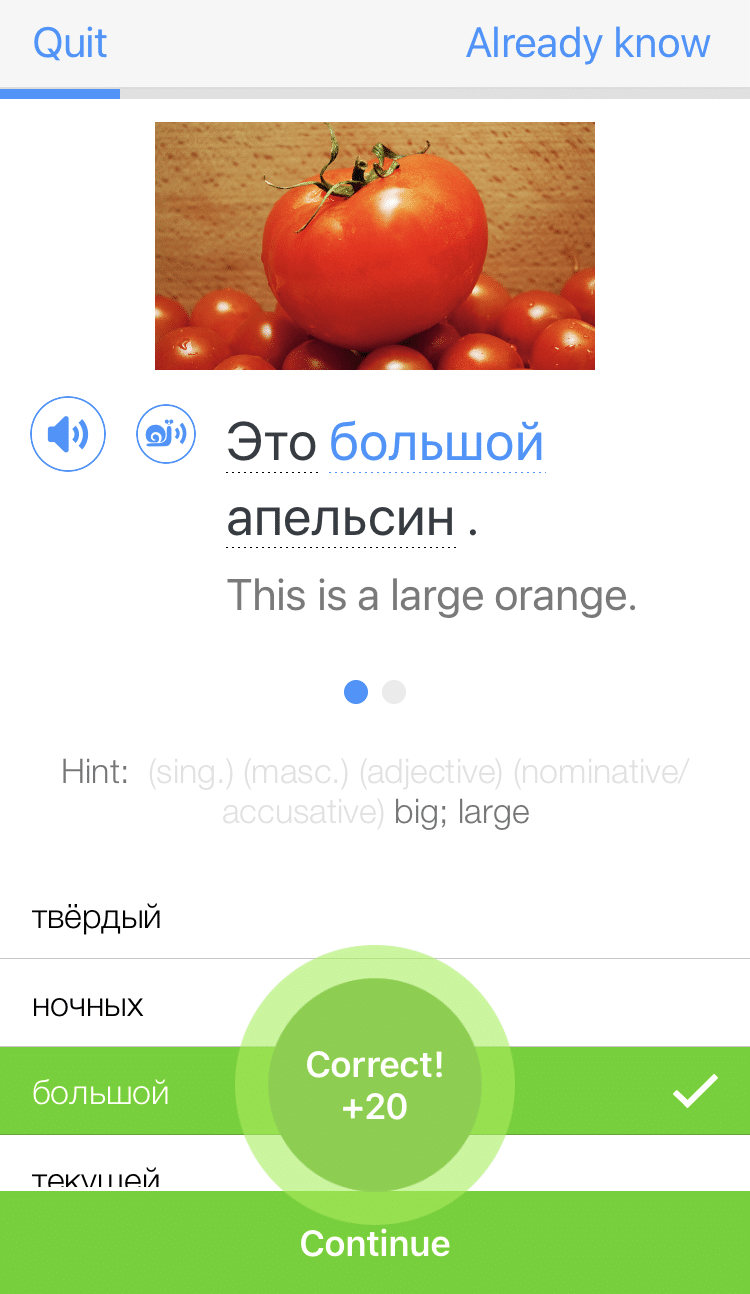
10 Russian Blogs and 5 Famous Russian Bloggers for Language Learners
There are some outstanding online resources for learning Russian.
Russian learning blogs will help clarify grammar rules, but when you need to practice your Russian reading skills or acquire new vocabulary, real Russian blogs and bloggers provide awesome content to help you along the way.
Russian blogs offer a wide array of material on diverse topics.
But regardless of the subject matter, Russian bloggers can definitely help improve your Russian skills, so check out all 10 of these popular Russian blogs and bloggers!
Contents
- 5 Inspiring Russian Bloggers Who Will Up Your Russian Game
- Crème de la Kremlin: The 10 Best Blogs for Russian Learners
- Why Read Russian Blogs?
Download: This blog post is available as a convenient and portable PDF that you can take anywhere. Click here to get a copy. (Download)
5 Inspiring Russian Bloggers Who Will Up Your Russian Game
1. Rustem Adagamov of Журнал Другого
Perhaps it’s related to the prevalence of state-run media in Russia, but opposition blogs have enjoyed some popularity in the country.
Rustem Adagamov is a prominent Russian blogger. While he’s a member of the opposition, his blog, Журнал Другого (Magazine of the Other), mostly covers general news stories these days.
Unlike other blogs on this list, Журнал Другого is actually not routinely updated anymore, but this will make it less overwhelming for anyone who just wants to peruse archives. It’s also a good source for general vocabulary and reading practice. For instance, you might try reading this post about specialty clothing for people with disabilities.
2. Alexei Navalny
Another political blogger, Alexei Navalny is a prominent anti-corruption campaigner and Putin critic. Since his blog started in 2008, he has become very well-known.
While Navalny has been arrested from time to time, his blog is still updated quite frequently, so you won’t have to wait long for new reading material.
For Russian students, this is a helpful resource to learn more about the political debate occurring in Russia while picking up valuable vocabulary related to Russian politics.
This post on items confiscated from Navalny is helpful for students of the Russian language as it contains images of hand-written forms. Russian handwriting is quite different from printed Russian and this is a great way to practice the underused skill of reading handwritten Russian.
3. Ilya Birman
Ilya Birman is a designer, but his blog covers more than just design. He discusses travels, general musings and detailed information on technology.
While his posts on technology and design introduce these specific vocabularies, his posts on his travels and general discussions are a great way to practice broad vocabulary and improve your reading skills.
Plus, Ilya Birman also offers an English-language blog. While the English-language blog isn’t updated nearly as often as the Russian-language blog, they do share some of the same posts. Beginning and intermediate students can open and compare texts side by side to make the posts easier to follow.
For instance, you might compare this Russian-language post on Kiev to its English equivalent. This post has a lot of photos, so it’s a good way for beginning and intermediate Russian students to transition into reading more text-heavy blog posts.
4. Vita Kovaleva of La Vita Mia
If you like fashion, you’ll want to check out La Vita Mia. The blog is run by Vita Kovaleva, who describes her look as “neo-retro.” Whatever you call it, it’s cool.
Her posts focus predominantly on clothing, mainly her own outfits as well as roundups of items like maxi dresses. You can pick up clothing-related vocabulary and practice color words. For instance, you might try reading this post where she describes her outfit of a tweed skirt and check coat.
This is an approachable blog for Russian learners because it’s very photo-intensive and by using context clues, you can figure out the meanings of unfamiliar words. Connecting a word to its meaning without translating is an important step towards fluency. Many of the headings are in English and can help guide you along. Plus, it’s updated often, so you have an endless supply of learning tools.
5. Andrei Rudkov of Andy Chef
Andy Chef’s blog is run by Andrei Rudkov. The blog focuses on just two things: food and travel.
Here, you can read blog posts about his global travels, restaurant reviews and more. Start preparing to dine in a Russian restaurant by picking up food-related vocabulary, as well as words related to travel and global destinations.
Try reading this post on his trip to Tokyo to learn a lot of Japanese-related vocabulary.
Crème de la Kremlin: The 10 Best Blogs for Russian Learners
1. FluentU
Learn more than just the workings of a foreign language by getting insight into a country and its culture with FluentU to make your educational experience all the richer.
FluentU’s Russian Language and Culture Blog features posts dedicated to teaching language, but also discusses some fascinating features of Russian culture. You can boost your lingual skills while gaining tidbits of knowledge about the Russian way of life.
FluentU also has its own Russian learning program that’s based on videos and media clips.
Plus, the videos are all naturally entertaining since they come from the shows, movies and channels that native Russian-speakers enjoy on the regular. You can watch documentary footage, television show clips, funny commericals and more all while learning the Russian language!
Take a quick look at what FluentU has on offer for yourself:

Didn't catch something? Go back and listen again. Missed a word? FluentU makes native Russian videos approachable through interactive captions. Tap or click on any word to see a definition, in-context usage examples, audio pronunciation, helpful images and more.

Access a complete interactive transcript of every video under the Dialogue tab. Easily review words and phrases with audio under Vocab.

Don’t stop there, though! Use FluentU’s quizzes to actively practice all the vocabulary in any video. Swipe left or right to see more examples of the word you're on.

And FluentU always keeps track of vocabulary that you’re learning. It uses that information to give you a 100% personalized experience by recommending videos and examples.
Start using the FluentU website on your computer or tablet or, better yet, download the FluentU app from the iTunes or Google Play store. Click here to take advantage of our current sale! (Expires at the end of this month.)
2. Beauty Insider
Beauty Insider is a blog dedicated primarily to beauty reviews. These include makeup, hair care, skin care and perfume.
However, there’s even more material than that. Beauty Insider’s “fitness” section will also give you advice on living a healthier lifestyle, ultimately introducing all sorts of helpful terms related to beauty products, fitness, makeup terms and very specific color words.
Plus, you might learn a few tips and tricks along the way! For instance, you might try reading this review of fancy brand Clé de Peau Beauté’s spring/summer collection.
3. The Russian Blog
The Russian Blog’s vast archives offer a lot of great posts including words of the day, grammar lessons, discussion of holidays and information on Russian news and events.
Access lessons, reviews of Russian learning materials, information on the alphabet, material on grammar rules, a list of basic phrases and links to more resources by using the headings at the top of the page to navigate through materials.
While the grammar and vocabulary lessons are usually most appropriate for beginning learners, there are still some real gems for the more advanced, such as this post on prefixes. These posts about Russian culture and news are great for Russian students of all levels. After all, to grasp a language fully, you also need to be familiar with the culture.
4. Salat Shop
If you like your Russian learning with a side of healthy living, Salat Shop might be just the blog for you.
Post topics include specialty diets, yoga, healthy recipes and the health benefits of different foods, teaching you some food- and cooking-related terms in addition to health vocabulary.
If you’re really ready to test your Russian skills, try out one of the recipes. This will exercise your reading skills and help you think in Russian. Attempt this recipe for pumpkin pancakes—because who doesn’t want a healthy pancake?
5. Russificate
Russificate is an exceptional Russian learning blog that’s frequently updated.
Blog posts include material ranging from Russian language tests, to reading texts with brief quizzes at the end, to listening excerpts with corresponding activities. The site also offers headings to guide you toward materials related to writing, reading, listening, vocabulary, grammar, culture and more specialized topics.
Since Russificate is written almost entirely in Russian, it’s best for intermediate and advanced learners who already have a stronger grasp of the language and their reading skills.
6. Мы любим грамматику! (“We Love Grammar!”)
With this blog’s help, you too will love grammar in no time.
Мы любим грамматику! is actually a Tumblr account that reposts helpful Russian posts from several other sites, collating some of the finest Russian learning material out there for your perusal.
The material is quite varied and useful for all levels of language learners. Some of it is on unique grammar rules, while other material includes learning tips, Russian culture info and featured words.
Additionally, you can use the headings on the top of the page to access lessons, idioms of the day, vocabulary lists and many other resources.
7. Learning to Know Russian
While Learning to Know Russian mostly targets travelers, it’s a terrific site for learners of all levels and types. Though it hasn’t been updated in a while, its archives still contain a lot of helpful lessons.
Why read a website aimed at travelers if you aren’t traveling to Russia in the near future? It’s simple: Learning to Know Russian aims to help you communicate and sound like a native.
With helpful articles like “Sound Like a Russian in 20 Minutes: 13 Need-to-know Words” and “10 Awkward Mistakes to Avoid When Speaking Russian,” you’ll be talking like a native in no time.
8. Just Russian
Just Russian’s primary focus is culture with a little grammar thrown in for good measure.
This blog focuses on a lot of topics that are important to understand but are rarely covered in textbooks. For instance, you can learn about the history of Russian Christmas traditions. You might also study up on Russian names, which are often confusing to people who aren’t from Russia (especially if you’ve ever tried to read long Russian novels with many characters who are called by several names each).
Since the blog is written in English, it’s an easy way for even beginning students to gain more understanding of Russian history and culture. More advanced learners might also find it a much needed break from focused language study.
9. Луч света
If you want to learn about Russian language and culture simultaneously, Луч света (Ray of Light) is a helpful blog that covers both topics. The posts cover current events in Russia with blogger Sarah Ruth Lorenz’s expert insights on how the Russian language is used in different contexts and by different public figures.
You’ll find posts that cover significant events like anti-corruption protests and notable people like star chess player Sergey Karjakin.
Each post is written mostly in English, allowing you to digest the material easily. However, the posts also introduce key Russian vocabulary before providing one or more authentic Russian-language videos on the subject.
Луч света also provides a helpful transcript of each video, allowing you to practice your reading, your listening or both.
10. Explore Russian
Explore Russian offers a terrific selection of posts for all your grammar and culture needs.
The blog posts usually contain both videos and text. The videos feature real Russians discussing key linguistic concepts. The text of each post includes a transcript of the video along with English translations. This way, even if you don’t understand all the words, you can easily find the in-context meaning.
Explore Russian posts cover both grammar rules as well as cultural traditions. For instance, you might enjoy a post about St. Petersburgians’ perspectives on verb aspects or the Russian take on Valentine’s Day.
While the videos themselves are most appropriate for intermediate to advanced students, the transcripts make Explore Russian accessible for even beginning Russian students.
Why Read Russian Blogs?
First, Russian blogs are entertaining. With blogs, you can read about your interests, motivating you to keep coming back and slowly learning more. It’s a win-win for both your entertainment and Russian skills.
Secondly, Russian blogs offer topical, thematic vocabulary. Looking to learn new vocabulary sets? Select your favorite blog related to the topic. If you want to learn more about food terms, try a cooking blog! Read what you can, and when you find an unfamiliar word, look it up online. You can even put together your own vocabulary lists of words you’ve encountered to study more.
Finally, Russian blogs offer a lot of material and are usually updated often, so there’s always a new learning tool at the tips of your fingers. Having this constant access to new material ensures that you get fresh supplements for your learning.
Some Russian bloggers also have YouTube channels where they upload vlogs and other videos. These can be a great way to practice your listening skills.
If you have trouble watching these because the speech is too fast or the words are new, finding videos with captions can be helpful. Besides YouTube (which doesn’t always have accurate subtitles), one program that specializes in providing authentic Russian videos like vlogs with interactive captions is FluentU. You can also save any new words that you find while watching to your personalized flashcards.
The next time you’re blog hopping, check out the work of these popular Russian bloggers, and watch your skills increase with each new post.
So, what’s the hold up?
Quit Stalin and start reading these great learning blogs!
Download: This blog post is available as a convenient and portable PDF that you can take anywhere. Click here to get a copy. (Download)









